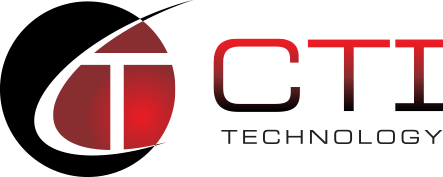Ways Your Chicago Law Practice Can Enhance Client Data Protection
In today’s digital age, protecting sensitive client data is not just a good business practice — it’s a legal obligation. Chicago law practices are responsible for safeguarding a vast amount of invaluable information, from financial details to personal records. Ensuring the security of this data is crucial not only for maintaining the trust of your clients but also for complying with privacy regulations and avoiding potential liabilities.
With the increasing number of cyberattacks and data breaches, law firms need a solid plan to protect their clients’ data from unauthorized access and misuse. This involves implementing robust policies, utilizing top-notch security technologies, and staying up-to-date on the latest threats and trends in the industry.
Key Takeaways
- Prioritize protecting sensitive client data to maintain trust and comply with regulations.
- Implement robust security policies and technologies and stay informed on industry trends.
- Protect your Chicago law practice from liability by ensuring client data security.
CTI Technologies: Chicago Law Firm Tech Professionals
CTI Technologies offers many solutions to help your Chicago law practice protect sensitive client data better. Ensuring the security and privacy of your client’s information is vital in today’s increasingly digital and connected world. By implementing cutting-edge tools from CTI Technologies, you can significantly enhance the protection of your client data.
One of the key offerings from CTI Technologies is its advanced encryption software. These encryption tools use the latest algorithms and security protocols to safeguard your clients’ sensitive data when stored on your systems and during transmission. Encrypting your data can prevent unauthorized access and ensure that only those with the proper credentials can access confidential information.
In addition to encryption tools, CTI Technologies provides secure cloud storage solutions for your law firm. Cloud storage offers several benefits, including accessing your data from any location with an internet connection and the scalability to accommodate growing data storage needs. CTI’s cloud storage uses multi-factor authentication and strong encryption to protect your files, ensuring your sensitive client data is not compromised.
Lastly, CTI Technologies offers robust network security solutions that help you protect your law practice’s digital infrastructure. This includes firewalls, intrusion detection systems, and regular security updates to patch against vulnerabilities. Investing in a robust network security system can safeguard your client’s data from potential cyber threats and keep your law practice compliant with industry regulations.
In summary, implementing CTI Technologies’ offerings in your Chicago law practice can significantly enhance your ability to protect sensitive client data through encryption software, secure cloud storage, and robust network security.
How To Protect Sensitive Client Data
Make sure your software is updated.
Keeping your software updated is essential in securing your client data. Regularly updating your operating system and applications will protect against known vulnerabilities. Enable automatic updates when possible and follow a proper patch management process.
Password managers
Using a password manager can significantly increase the security of your sensitive client data. A password manager helps you create unique passwords for each account and keeps them all securely stored. This way, you don’t need to remember them and can avoid reusing passwords.
Encryption
Encrypting your data at rest and in transit is a crucial step in protecting sensitive information. Use encryption tools to protect data stored on your devices and encrypt emails and other communications. Cloud storage providers also offer encryption services, which can further secure your data.
Multi-Factor Authentication
Implement multi-factor authentication (MFA) for all your accounts and devices. MFA adds a layer of protection beyond a password, such as a fingerprint or a one-time code sent to your phone. Implementing MFA can significantly reduce the risk of unauthorized access to your accounts.
Perimeter Security
Don’t overlook the physical security of your office. Implement access control measures to prevent unauthorized access and use security cameras to monitor your office. Ensure your Wi-Fi network is secure and that only authorized personnel can connect. In addition, consider using a virtual private network (VPN) for remote access to your office network.
Cybersecurity Training
Educate your employees about data protection and cybersecurity best practices. Teach them to identify phishing emails, create strong passwords, and follow proper data management procedures. Regular training will help maintain a security-conscious culture in your law practice and minimize the risk of data breaches.
Frequently Asked Questions
How can law firms implement effective cybersecurity policies?
You should conduct a thorough risk assessment to identify potential vulnerabilities to implement effective cybersecurity policies. Develop a comprehensive cybersecurity plan addressing these vulnerabilities, including security policies, employee training, and incident response strategies. Regularly review and update the guidelines to adapt to the evolving cyber threat landscape.
What measures can be taken to secure data storage in a law firm?
Securing data storage in your law firm involves several steps. First, encrypt sensitive data both at rest and in transit. Implement strong access controls, ensuring only authorized personnel can access sensitive information. Regularly back up data to a secure off-site location and establish a secure document disposal policy to prevent unauthorized access to discarded documents.
What are the best practices for ensuring the security of sensitive information?
- Use strong, unique passwords for all accounts and devices
- Enable multi-factor authentication for added security
- Limit access to sensitive information on a need-to-know basis
- Train employees regularly about cybersecurity best practices and the latest threats
- Install security software, such as antivirus and anti-malware programs, and keep them updated
- Regularly update and patch all software, including operating systems and applications
How can law firms mitigate the risk of data breaches?
Mitigating the risk of data breaches requires a comprehensive approach, including the following steps:
- Conduct regular risk assessments to identify potential vulnerabilities
- Implement cybersecurity best practices, such as strong passwords, encryption, and access control
- Train employees on cybersecurity awareness and the importance of protecting sensitive client data
- Develop and practice a detailed incident response plan to address potential breaches effectively
- Monitor and review your security policies and measures regularly to adapt to the evolving cyber threat landscape
What factors indicate that a law firm has made reasonable efforts to prevent data breaches?
A law firm that has made reasonable efforts to prevent data breaches will have the following:
- A detailed, comprehensive cybersecurity policy in place
- Regular risk assessments identify potential vulnerabilities and address them proactively
- Employee training programs that emphasize the importance of data security and best practices
- Implemented strong access controls, encryption, and secure document disposal policies
- Deployed security software, such as antivirus and anti-malware programs, and regularly updated software and systems
What role does a firewall play in protecting a law firm’s data?
A firewall is a barrier between your law firm’s internal network and external threats, protecting against unauthorized access. Firewalls monitor incoming and outgoing traffic, allowing or blocking it based on predetermined rules. This helps prevent cyber criminals from accessing your sensitive client data and mitigates the risk of data breaches. Regularly update and maintain your firewall configuration to ensure optimal protection.
Why Is CTI Technology The Best Choice For IT Services In The Chicagoland Region?






















